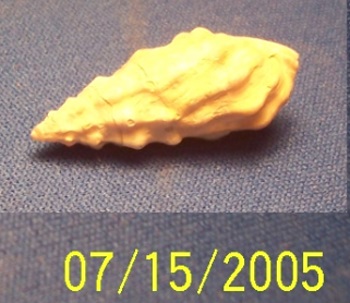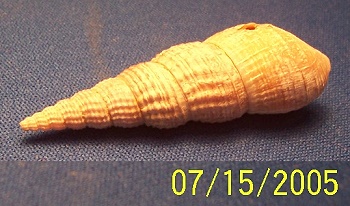Dear Avril,
Thank you for the striking image that your post inspired. That
is, the thought of Noah's Ark including living examples of every
species of freshwater and terrrestrial mollusk (presumably leaving
the marine ones to fend for themselves). This collection, which
would have been far superior to any reference collection of these
animals existing in the world today, could only have been gathered
together by someone with an uncanny eye for minute specific distinctions
among these variable creatures, so Noah must have been the greatest
malacologist of all time as well as the greatest collector. What
a pity that Noah had to disperse his collection, eh?
While we are on the subject of traditional stories, let me recommend
a couple of books by Adrienne Mayor:
Fossil Legends of the First Americans.
The First Fossil Hunters: Paleontology in Greek and Roman Times.
In these books, Mayor shows that people were aware of the existence
of fossils well before the advent of modern science. Some of the
evidence is archaeological, including fossil collections recovered
from an Egyptian temple and a Roman palace on Capri, and a Greek
vase showing a fossil skull in a mythological context. Other evidence
is historical or literary. In some cases, she attempts to trace
legends to fossil inspirations, for example, the one-eyed, giant
Cyclops was supposed to live in an area known for its fossil elephant
remains, and elephant skulls do look as though they have a single
large eye socket in front. (It's a trunk socket. The real eye
sockets are smaller and on the sides.) In another example, the
legendary griffin may have been inspired by fossils of Protoceratops
in the Gobi Desert. This one is a bit of a stretch, but the sheer
weight of detail in Mayor's book shows beyond a doubt that the
ancients realized that fossils were the remains of once-living
organisms, and were curious about them. They didn't have all the
answers but they did have good questions.
Cheers,
Andy

